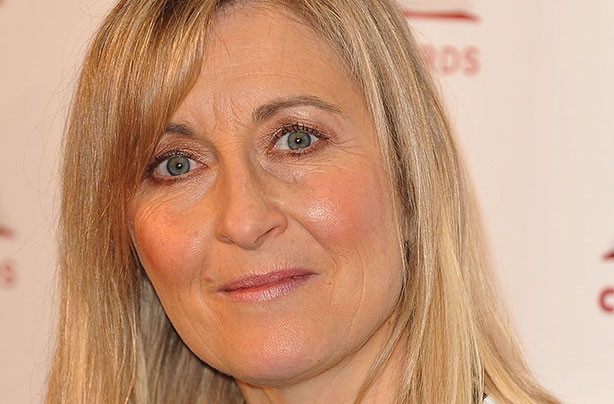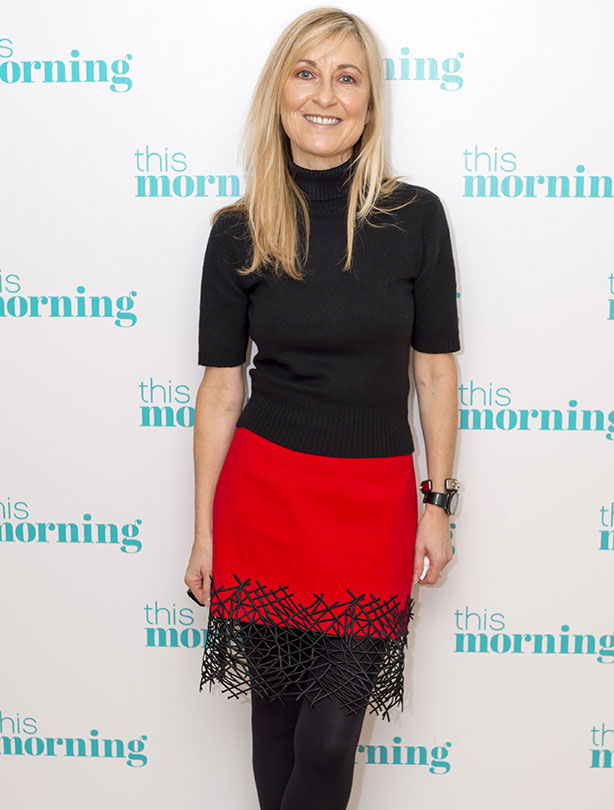'I was a mess' Fiona Phillips opens up about mental health battle during Strictly Come Dancing
The presenter struggled balancing her home and work life.

Parenting advice, hot topics, best buys and family finance tips delivered straight to your inbox.
You are now subscribed
Your newsletter sign-up was successful
Fiona Phillips has opened up about her struggle with depression, revealing that she felt 'mentally unwell' whilst taking part in the third series of Strictly Come Dancing.
The 56-year-old has spoken out about her mental health issues in a recent interview, explaining how difficult she found the balance of work and family life after being asked to go on the BBC show.
Speaking to The Mirror, Fiona explained that during the 2005 series her mum was ill and needed a lot of care, and whilst balancing family life and dance training, the presenter was also getting up early to appear on GMTV.
She said, 'I was doing GMTV and had the children and my parents, and I threw that into the mix and I just felt this enormous guilt.'
Fiona revealed she would think to herself, '"Why am I doing this when my mum's in a home?" I was a mess...'
Fiona continued to explain that she had been struggling with depression already, which, combined with a busy family life, had caused her to turn down previous offers.
'I was asked to do the first series and the second. Then my agent said, "If you don't do it now you can say goodbye to big gigs at the BBC", and what have you. There was real pressure.
Parenting advice, hot topics, best buys and family finance tips delivered straight to your inbox.
'So I did it but I wasn't well enough to be doing it, mentally.'

Despite her co-star at the time, Eamonn Holmes, urging her to talk to a medical professional, Fiona felt she couldn't. 'I didn't seek help – I didn't have time', she said.
This isn't the first time the mum-of-two has spoken out about her mental health, having previously penned an honest personal essay for The Mirror.
The essay detailed the struggles she faced on a daily basis, and challenged that more be done to support those with mental health issues.
'Some days I wake up with a horribly familiar feeling in my head. A fizz and a fuzz and a thumping weight,' the 56-year-old wrote in the piece. 'A tearful, heavy, lead-limbed unworthiness.
'Most times when that happens it's hard to face the day. Can't get up. Can't deal with the prospect of a dark day in bed. Get up. Go back. Get up. Have a shower in the hope it'll wash away.
'It's hard to describe. There's no tangible reason for it. It arrives at will. And does its worst.
'At times it's a self-loathing that brings with it a sense of shame – a perception of weakness, a not feeling able to say "I'm ill", because there's no physical outward manifestation of it. Apart from a shrunken demeanour.'
Trusted, informative, and empathetic – GoodToKnow is the ultimate online destination for parents. At GoodtoKnow, our mission is 'simple': we're trying to make sense of parenthood. On the site, you'll find everything you need for a happy, healthy family life. Our huge archive of content includes more than 18,000 articles and 1,500 how-to videos. These include expert-backed advice features on parenting, dealing with relationship changes after having a baby, self-care for mums and managing your family finances. We also feature tried-and-tested product reviews and buying recommendations for every stage of family life - from prams and Moses baskets to birthday gifts and top toys.